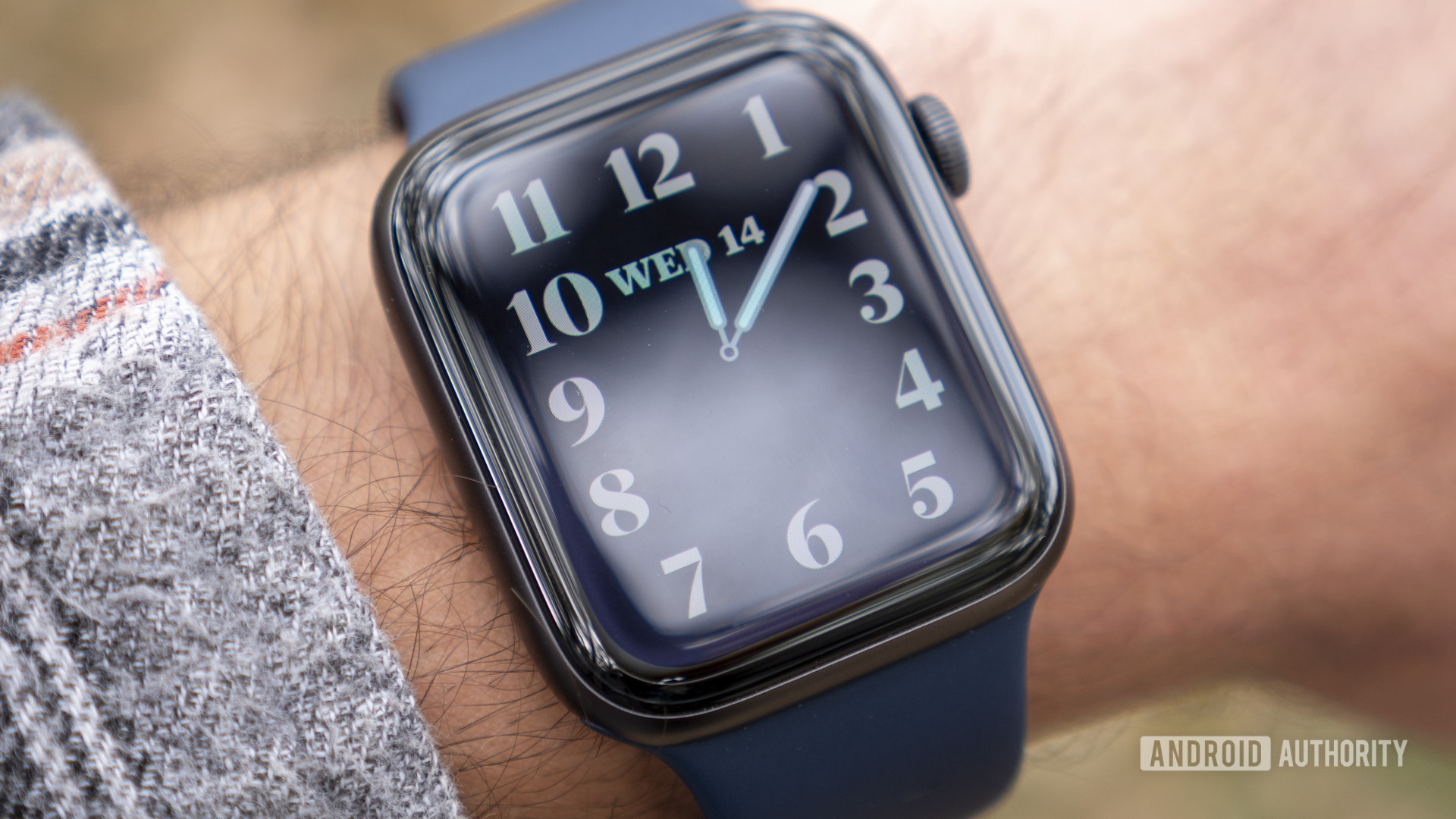Affiliate links on Android Authority may earn us a commission. Learn more.
Future Apple Watch could gain sweat-sampling hydration tracker
Published onAugust 20, 2021

- Apple has filed a patent for a hydration tracking sensor system for the Apple Watch.
- The sensor would sample a wearer’s sweat for electrolytes and calculate their hydration levels.
- This would be particularly useful for athletes or those who regularly forget to hydrate.
Hydration tracking is a standard feature on several smartwatches allowing users to keep track of their fluid intake. But a new patent by Apple suggests that the Apple Watch may soon monitor a wearer’s hydration levels automatically.
Spotted by Patently Apple (h/t GizmoChina), the patent details a non-invasive hydration tracking sensor that’ll monitor the electrolytes in a wearer’s perspiration using electrodes. The watch can calculate the user’s hydration level based on the concentration of these electrolytes in the wearer’s sweat. Apple is considering placing “one or more electrodes” on the Apple Watch’s band.
Apple Watch hydration tracking: The Pros
Hydration tracking would be a handy tool for athletes at risk of dehydration during marathons or hikes. Should hydration levels deteriorate, it’s likely that the wearable will then be able to advise its owner to drink well before dehydration sets in. While there are plenty of water reminder apps available, they rely on a pre-determined period to issue reminders, not real-time data. When used alongside the Apple Watch’s other metrics, hydration data could help wearers understand their current and long-term health.
Apple’s last significant sensor addition to its wearable line brought an ECG to the Series 4. Since then, the likes of Samsung and Fitbit have also introduced body composition sensors and EDA sensors to their respective devices.
Based on the filing date, Apple has been working on this patent for at least three years, but it’s unlikely the sensor would be ready for use on the Apple Watch Series 7. Don’t rule out its introduction on a future model, though.
What do you think of smartwatch-based hydration tracking? Let us know in the comments below.